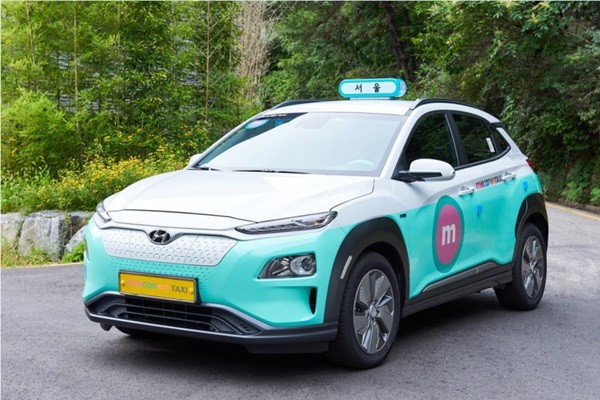Hyundai Motor Company and LG Chem, Hyundai Glovis, KST Mobility (Macaron Taxi) are pushing for South Korea’s first electric vehicle battery lease business.
This business model will lower financial burden of purchasing electric vehicles that are at least 30% more expensive than equivalent diesel locomotives and consider back-end industries related to battery exchange and reuse of used battery. As the amount of subsidy for an electric vehicle has become lower annually, this model is seen as an alternative plan that will help expand South Korea’s electric vehicle market.
According to the industry, Hyundai Motor Company recently formed a consortium with LG Chem, Hyundai Glovis, and KST Mobility and it is pushing for a “electric vehicle battery lease business”.
This business allows a customer to only pay the cost of electric vehicle minus the cost of battery and make a monthly payment for leasing a battery.
Groupe Renault is currently carrying out a similar business for electric vehicles such as “ZOE” in few European countries. However, this is the first time when relevant businesses such as automotive manufacturer, battery manufacturer, and vehicle service provider formed an alliance to carry out a battery lease business while considering back-end industries.
Through this business, one can purchase Hyundai Motor Company’s “Kona Electric”, which is currently the most sold electric vehicle in South Korea, at a price between $12,600 (15 million KRW) and $14,300 (17 million KRW). This price range is similar to the price of an equivalent diesel locomotive.
 <Macaron’s electric taxi based on Hyundai Motor Company’s electric vehicle Kona Electric>
<Macaron’s electric taxi based on Hyundai Motor Company’s electric vehicle Kona Electric>It is also possible to replace a used battery with a new battery when there is degradation to the battery. The consortium also plans to reuse used batteries for ESS (Energy Storage System) and UPS (Uninterruptible Power Supply).
Hyundai Motor Company will oversee vehicle support and back-end industries while KST Mobility will provide necessary data on operation and driving pattern by utilizing its “Macaron Taxi”. LG Chem will provide battery system support and analyze energy data from operating electric vehicles while Hyundai Glovis will be responsible for battery lease.
The consortium is planning to introduce 30 Macaron Taxis first and conduct a demonstration project in the first half. It is planning to increase the number of taxis to 250 by end of this year.
However, it is not heard whether the consortium will use “Kona Electric” or new electric vehicles that can be easily detached from their batteries.
“We are going to lower prices of electric vehicles through this business and we are working with relevant businesses in order to present an effective model that will cover battery management and reuse.” said a representative Hyundai Motor Company. “However, we cannot disclose any detailed information such as timing and business scale.”
Meanwhile, because the government subsidy is only provided when a person pays the price of entire electric vehicle, the battery lease business model will not be subjected to the government subsidy. However, there is a chance that the business model will emerge as a new alternative in purchasing electric vehicles as prices of electric vehicles are not dropping despite the government subsidy for electric vehicles that is available throughout the year.
Staff Reporter Park, Taejoon | gaius@etnews.com
Copyright © The Electronic Times Corp. & The Electronic Times Internet Corp. All Rights Reserved.
